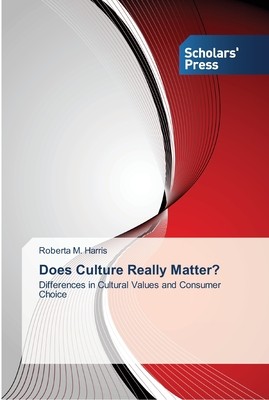
- We will send in 10–14 business days.
- Author: Roberta M Harris
- Publisher: Scholars' Press
- ISBN-10: 3639705971
- ISBN-13: 9783639705973
- Format: 15.2 x 22.9 x 0.8 cm, softcover
- Language: English
- SAVE -10% with code: EXTRA
Reviews
Description
This study examines the effect of cultural values on consumer spending among U.S.-born consumers, and newly migrated Chinese and Indians consumers living in the U.S. Comprehensive research conducted by Geert Hofstede and Michael H. Bond (1988) suggests that value systems vary across different culture groups specifically with regard to balancing current and future goals. Charles Heath and Jack B. Soll's (1996) research shows that recent purchase activity results in underconsumption once mental budgets (or spending accounts) have been depleted. Joining these two propositions, Dr. Harris argues that differences in underconsumption levels among U.S.-born, Indian, and Chinese consumer groups occur due to differences in cultural values--specifically the long-term value orientation. Comparative analysis of results for each of these groups indicates that differences in underconsumption are driven by the strength of the long-term value dimension. It is suggested that managers consider cultural differences in addition to recent purchase activity when analyzing consumer spending patterns to ensure maximum benefit from promotional efforts.
EXTRA 10 % discount with code: EXTRA
The promotion ends in 17d.04:14:09
The discount code is valid when purchasing from 10 €. Discounts do not stack.
- Author: Roberta M Harris
- Publisher: Scholars' Press
- ISBN-10: 3639705971
- ISBN-13: 9783639705973
- Format: 15.2 x 22.9 x 0.8 cm, softcover
- Language: English English
This study examines the effect of cultural values on consumer spending among U.S.-born consumers, and newly migrated Chinese and Indians consumers living in the U.S. Comprehensive research conducted by Geert Hofstede and Michael H. Bond (1988) suggests that value systems vary across different culture groups specifically with regard to balancing current and future goals. Charles Heath and Jack B. Soll's (1996) research shows that recent purchase activity results in underconsumption once mental budgets (or spending accounts) have been depleted. Joining these two propositions, Dr. Harris argues that differences in underconsumption levels among U.S.-born, Indian, and Chinese consumer groups occur due to differences in cultural values--specifically the long-term value orientation. Comparative analysis of results for each of these groups indicates that differences in underconsumption are driven by the strength of the long-term value dimension. It is suggested that managers consider cultural differences in addition to recent purchase activity when analyzing consumer spending patterns to ensure maximum benefit from promotional efforts.


Reviews